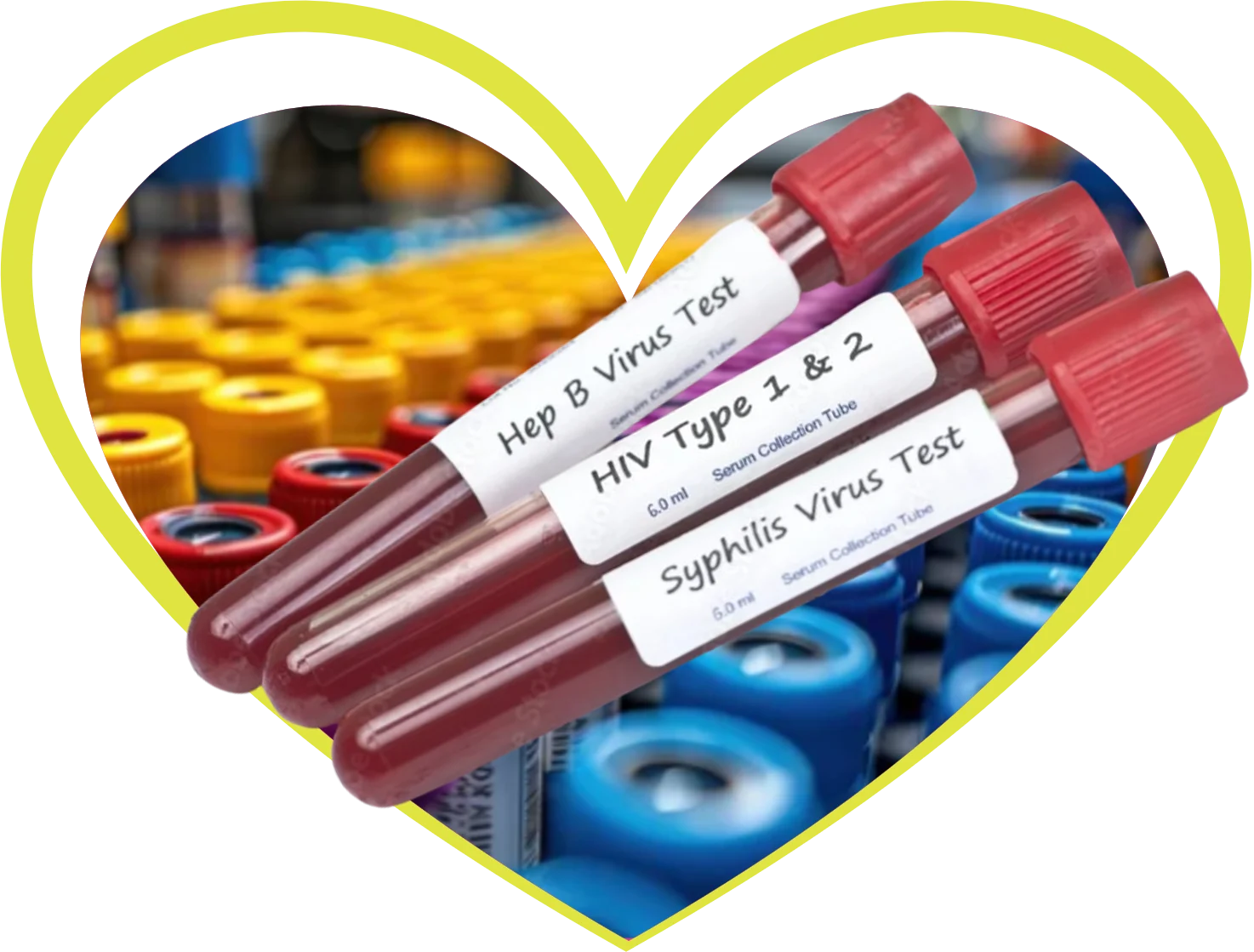Are questions about STD’s keeping you up at night, causing anxiety and uncertainty? Maybe you’re worried about prevention, unsure about symptoms, or confused by the treatments available? You’re not alone. We’ll simplify this complex topic to give you confidence in your next step forward. Plus, be sure to read questions readers just like yourself submitted below in our People Also Asked section. Let’s get started.

Key Takeaways
- STD’s can be bacterial, viral, or parasitic, but all are preventable.
- Common symptoms include unusual discharge, pain during urination, or sores.
- Avoid myths: STD’s don’t spread through casual contact.
- Regular testing is vital, especially with new partners or if symptoms emerge.
- Treatment differs; bacterial are curable, viral infections are manageable.
Everything You Should Know About STD’s: Prevention, Symptoms, and Treatment
Sexually Transmitted Diseases (STD’s) are infections spread primarily through sexual activity. They can be bacterial, viral, or parasitic, and awareness is key to both preventing and managing them effectively. Let’s explore more about these infections.
What is an STD?
An STD refers to infections that move from one person to another during sexual activity, such as vaginal, anal, or oral sex. These infections don’t discriminate by gender or age amongst sexually active individuals. Luckily, prevention and treatment options are available.
What is Commonly Confused With an STD?
Conditions such as yeast infections or urinary tract infections (UTI’s) can mimic STD symptoms like itching or burning. Though they present similarly, they require different treatments. It’s essential to seek proper diagnosis.
Prevalent STDs You Should Know About
Which STD’s Are Most Widespread?
The common STD’s include:
- Chlamydia: Often symptomless, frequently found in women under 25.
- Gonorrhea: Symptoms might be a sore throat or painful urination.
- Syphilis: Begins with sores and develops in stages if untreated.
- Herpes (HSV-1 & HSV-2): Causes blisters around the mouth or genitals.
- Human Papillomavirus (HPV): Can lead to cervical cancer, hence vaccination is critical.
- HIV/AIDS: Weakens the immune system over time.
- Trichomoniasis: Causes discomfort and a change in discharge.
- Hepatitis B & C: Directly affects liver health.
Are Some STD’s Affected by Stress?
Herpes is notable for reactivating during stress. The infection can stay dormant until the immune system is challenged.
Will STD’s Disappear Without Treatment?
Most STD’s won’t resolve naturally and need medical attention. Medical intervention is crucial to prevent severe health complications.
Signs and Symptoms of STD’s
What Are General STD Symptoms?
Symptoms often include unexpected vaginal discharge, painful urination, or sores. But keep in mind, many STD’s don’t initially present any symptoms.

Differentiating a UTI from an STD
UTI’s often manifest with burning urination or frequent urges, without abnormal discharge that STD’s may cause. Be mindful of differences and consult a healthcare provider for accurate diagnosis.
Are Asymptomatic STD’s a Possibility?
Yes, STD’s like chlamydia can be silent, especially in females. The absence of symptoms may lead to postponed treatment and increased health risks.
How Quickly Do STD Symptoms Show?
Symptoms can appear days to weeks after exposure. Don’t hesitate to seek professional help if you’re concerned.
Is It Necessary to Tell Your Partner?
Communication is crucial, and may even be legally required in some states or countries. Informing partners about symptoms allows both to consider testing and seek appropriate treatment.
What Steps to Take If Symptoms Appear?
See a healthcare provider for assessment and testing. Accurate diagnosis prevents further spread and health issues.
Getting Tested and Diagnosis Process
When to Consider STD Testing?
If sexually active, testing should be routine annually or upon starting a new relationship. Regular screenings help detect asymptomatic infections.
How Soon Will Tests Detect an STD?
The time frame for detection varies among STD’s but is generally a few days to weeks post-exposure. A few may avoid detection for years such as HIV which can remain dormant. Discuss with your provider for personalized advice.
What Forms Do STD Tests Take?
Tests generally require blood, urine samples, or swabs. Some are infection-specific, while others offer a broad screening.
Can You Screen for Multiple STD’s in One Test?
Yes, comprehensive panels are designed for multiple screenings. Providers can recommend options suitable for your health needs.
Where to Access STD Testing?
Get tested at healthcare facilities or clinics specializing in women’s health. Confidential testing services maintain your privacy.
Options for Treatment
What’s the Duration for Treatment?
Recovery time can vary from a single dose to several weeks, contingent on the infection’s severity. Follow-ups are vital for effective recovery.
Risks of Untreated STD’s
Ignoring STD’s carries risks like infertility and other severe complications. It’s imperative to seek the guidance of healthcare providers.
Addressing Symptoms and Managing Anxiety
How to Cope with Anxiety About STD’s
Engage with professionals if overwhelmed. Emotional support and mental health services provide strategies for managing fears. Stress might exacerbate symptoms, making discernment challenging. Consulting with a professional can clarify uncertainties. Don’t let fear hold you back. Reach out for compassionate, non-judgmental assistance to manage treatment processes.
Strategies for STD Prevention
Efforts to Prevent STD’s
- Practice Safe Intercourse: Use condoms or dental dams consistently.
- Frequent Screenings: Identify infections early through regular testing.
- Vaccines: Protect yourself with approved vaccines, especially against HPV and Hepatitis B.
Can STD’s Transmit Despite Protection?
Though protection greatly reduces risk, it isn’t foolproof. Combining safe practices with regular screenings is advisable.
Pregnancy and STD’s
How Do STD’s Influence Pregnancy?
They can lead to complications affecting both mother and child. Take chlamydia for example, if left untreated it can lead to newborn blindness. This is why consistent screenings help mitigate risks.
Safe Treatment During Pregnancy
Healthcare providers tailor treatments to ensure the safety of both mother and child.
Emotional and Social Impacts of an STD
Coping with an STD Diagnosis
Receiving an STD diagnosis can be emotionally challenging. Lean on support systems such as friends, family, or counselors. Open discussion is key. Recognizing STD’s as health issues encourages responsible knowledge sharing and treatment seeking.
People Also Asked...
Still have questions?
Don't worry, you are not alone. Remember that we are here to help and support you. Your well-being is important to us, and we're committed to assisting you through any challenges you may be facing. Besides, having questions is a good and healthy thing! Check out our additional resources below:
- Prefer reading? Here's an article from ACOG (American College of Obstetricians and Gynecologists) on the matter.
- Rather watch or listen? Here's a video of Nelly, one of our esteemed providers, discussing the topic.
- For general questions? Reach us via any contact methods listed at the bottom of this page (live chat, email, text messages, or call).
- For specific medical questions or advice, it's always best to schedule an appointment.
 TLC’s Video Library
TLC’s Video Library
TLC’s Video Library Enjoy countless hours of expert insights, wellness tips, with a dose of inspiration and humor. Your path to a healthier, happier you starts now!
